Faculty Members / Research Areas
Professor
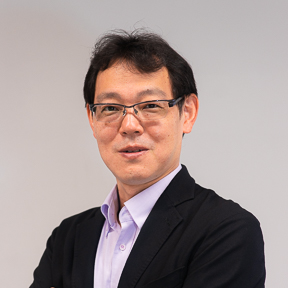
IWAMOTO Satoshi
Professor
Komaba Campus
Grad: SOE-EEIS
Dept: ー
Quantum Nanophotonics and Topological Photonics
Aiming at the realization of novel photonic devices and quantum information devices, we are researching optical science in photonic nanostructures, developing unique technology for controlling light and photons based on the concept of topology and researching diamond nanophotonics.

IWAMOTO Satoshi
Professor
Quantum Nanophotonics and Topological Photonics
Aiming at the realization of novel photonic devices and quantum information devices, we are researching optical science in photonic nanostructures, developing unique technology for controlling light and photons based on the concept of topology and researching diamond nanophotonics.
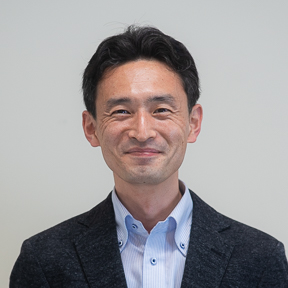
OHYA Shinobu
Professor
Hongo Campus
Grad: SOE-EEIS
Dept: EE
Creation of novel next-generation spin devices using ultra-high quality semiconductor/oxide quantum nano-heterostructures
Our group is developping atomically controlled high-quality single-crystal quantum heterostructures consisting of various material systems, mainly oxides and semiconductors. We combine the quantum properties of electrons with spin degrees of freedom to control spin current flow with high efficiency. We aim to pioneer novel physics and realize highly efficient low-energy consumption devices that will lead to next-generation green innovation.

OHYA Shinobu
Professor
Creation of novel next-generation spin devices using ultra-high quality semiconductor/oxide quantum nano-heterostructures
Our group is developping atomically controlled high-quality single-crystal quantum heterostructures consisting of various material systems, mainly oxides and semiconductors. We combine the quantum properties of electrons with spin degrees of freedom to control spin current flow with high efficiency. We aim to pioneer novel physics and realize highly efficient low-energy consumption devices that will lead to next-generation green innovation.
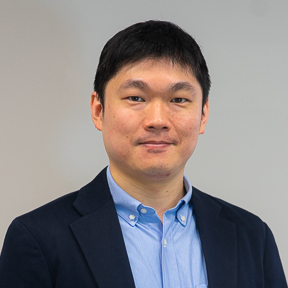
KOBAYASHI Masaharu
Professor
Komaba Campus
Grad: SOE-EEIS
Dept: EE
Semiconductor transistor and memory device technologies for next generation computing
Hiramoto/Kobayashi Laboratory is pursuing ultimate integrated nanoelectronics by device innovation to solve the world's issues.

KOBAYASHI Masaharu
Professor
Semiconductor transistor and memory device technologies for next generation computing
Hiramoto/Kobayashi Laboratory is pursuing ultimate integrated nanoelectronics by device innovation to solve the world's issues.
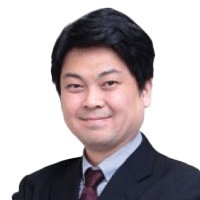
SUGIYAMA Masakazu
Professor
Komaba Campus
Grad: SOE-EEIS
Dept: EE
Materials / devices / systems to realize carbon neutrality.
Our interests spread from basic research on renewable energy to social implementation. The most exciting frontiers exist at the interfaces such as the ones between electricity and chemistry, research and society.

SUGIYAMA Masakazu
Professor
Materials / devices / systems to realize carbon neutrality.
Our interests spread from basic research on renewable energy to social implementation. The most exciting frontiers exist at the interfaces such as the ones between electricity and chemistry, research and society.
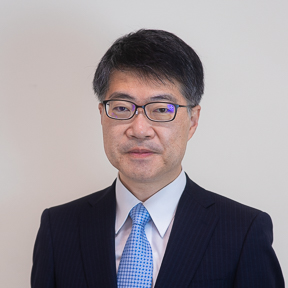
SOMEYA Takao
Professor
Hongo Campus
Grad: SOE-EEIS
Dept: EE
Research on skin electronics utilizing organic materials
We conduct research on the application of organic electronics to biological and medical devices. We actively collaborate with many domestic and international research groups (scientists, physicists, medical doctors, and companies).

SOMEYA Takao
Professor
Research on skin electronics utilizing organic materials
We conduct research on the application of organic electronics to biological and medical devices. We actively collaborate with many domestic and international research groups (scientists, physicists, medical doctors, and companies).
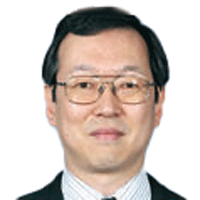
TAKAHASHI Takuji
Professor
Komaba Campus
Grad: SOE-EEIS
Dept: ー
Nanometer world explored by nanoprobes - "Observe" what are invisible to our eyes -
Our laboratory aims to establish new methods for evaluating physical properties in the nanometer range by making full use of the nanoprobe technology that has high spatial resolution at nanometer scale and to contribute to the exploration of new devices through understanding of those physical properties.

TAKAHASHI Takuji
Professor
Nanometer world explored by nanoprobes - "Observe" what are invisible to our eyes -
Our laboratory aims to establish new methods for evaluating physical properties in the nanometer range by making full use of the nanoprobe technology that has high spatial resolution at nanometer scale and to contribute to the exploration of new devices through understanding of those physical properties.
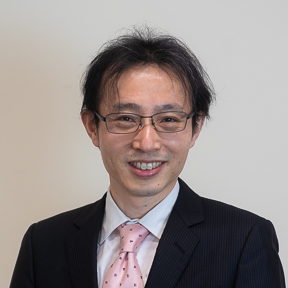
TAKENAKA Mitsuru
Professor
Hongo Campus
Grad: SOE-EEIS
Dept: EE
Si photonics for next-generation AI/IoT deviecs
We are conducting research on silicon photonics for electronic-photonic integrarted circuits By combining silicon photonics with III-V compound semiconductors, germanium, 2D materials and so on, we investigate programmable photonic integrated circuits for deep learning, optical interconnect LSI, and mid-infrared integrated circuits. Our goal is to achieve innovative computing that does not rely on Moore's Law.

TAKENAKA Mitsuru
Professor
Si photonics for next-generation AI/IoT deviecs
We are conducting research on silicon photonics for electronic-photonic integrarted circuits By combining silicon photonics with III-V compound semiconductors, germanium, 2D materials and so on, we investigate programmable photonic integrated circuits for deep learning, optical interconnect LSI, and mid-infrared integrated circuits. Our goal is to achieve innovative computing that does not rely on Moore's Law.
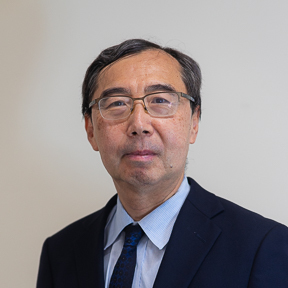
TANAKA Masaaki
Professor
Hongo Campus
Grad: SOE-EEIS, (※)
Dept: EE
New electronic materials / devices, spintronics, quantum science and technology
We are conducting research on new materials, hetero structures, nano structures, and devices, aiming to create new electronics using electronic spin functions and quantum phenomena. We are working on a wide range of themes, from basic research based on intellectual curiosity to research with an engineering application.

TANAKA Masaaki
Professor
New electronic materials / devices, spintronics, quantum science and technology
We are conducting research on new materials, hetero structures, nano structures, and devices, aiming to create new electronics using electronic spin functions and quantum phenomena. We are working on a wide range of themes, from basic research based on intellectual curiosity to research with an engineering application.
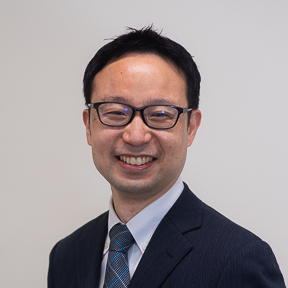
TANEMURA Takuo
Professor
Hongo Campus
Grad: SOE-EEIS
Dept: EE
Semiconductor integrated photonics
Our research focuses on integrated photonics, which invoves using a compact semiconductor chip of a few millimeters in size to manipulate the state of light. By leveraging the unique properties of "light", such as ultrabroad bandwidth, parallelism, and linearity, and offloading the intelligent digital computations to "electronic" circuits, we aim to create innovative photonic devices that can be applied to a wide range of fields, including next-generation optical communications, imaging, computing, and more.

TANEMURA Takuo
Professor
Semiconductor integrated photonics
Our research focuses on integrated photonics, which invoves using a compact semiconductor chip of a few millimeters in size to manipulate the state of light. By leveraging the unique properties of "light", such as ultrabroad bandwidth, parallelism, and linearity, and offloading the intelligent digital computations to "electronic" circuits, we aim to create innovative photonic devices that can be applied to a wide range of fields, including next-generation optical communications, imaging, computing, and more.
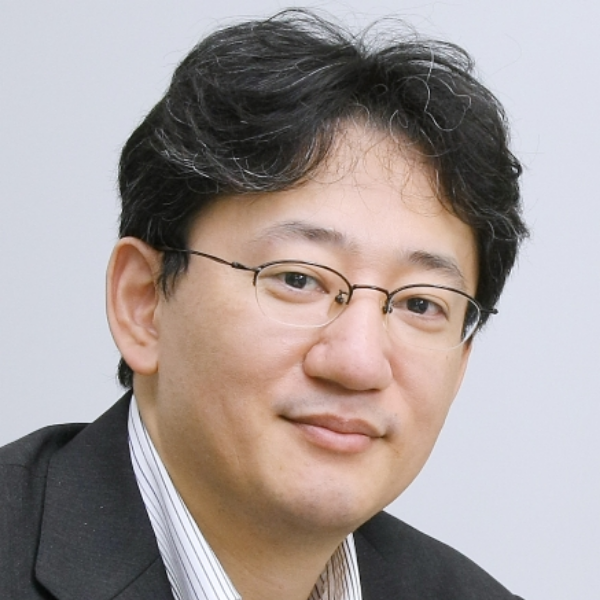
TOSHIYOSHI Hiroshi
Professor
Komaba Campus
Grad: SOE-EEIS
Dept: ー
MEMS/NEMS, Micro/Nano mechatronics
MEMS (microelectromechanical systems) technology is a composite field of electrical engineering, mechanics, chemistry, material science, fluidics, optics and else. Using semiconductor microfabrication technology, we develop various MEMS applications such as optic communication, image display, medical diagnosis, IoT sensors, and energy harvesters.

TOSHIYOSHI Hiroshi
Professor
MEMS/NEMS, Micro/Nano mechatronics
MEMS (microelectromechanical systems) technology is a composite field of electrical engineering, mechanics, chemistry, material science, fluidics, optics and else. Using semiconductor microfabrication technology, we develop various MEMS applications such as optic communication, image display, medical diagnosis, IoT sensors, and energy harvesters.
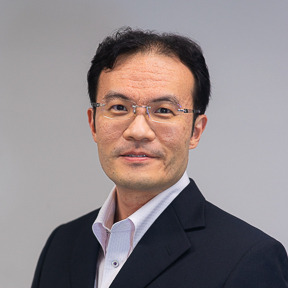
NOMURA Masahiro
Professor
Komaba Campus
Grad: SOE-EEIS
Dept: ー
Integrated quantum electronics and Thermoelectric energy harvesting
We are promoting physics exploration in semiconductors and two -dimensional materials and developing next -generation thermal flow control technology. We are studying new basic physics unique to a hybrid state of multiple quantums, which cannot be achieved with a single quantum, and is studying devices that enable quantum broadcasts. Applied research provides environmental thermal power generation and energy -saving devices, basic understanding of the physics of phonon and thermal control, which supports its technology development, and exploration of new physics.

NOMURA Masahiro
Professor
Integrated quantum electronics and Thermoelectric energy harvesting
We are promoting physics exploration in semiconductors and two -dimensional materials and developing next -generation thermal flow control technology. We are studying new basic physics unique to a hybrid state of multiple quantums, which cannot be achieved with a single quantum, and is studying devices that enable quantum broadcasts. Applied research provides environmental thermal power generation and energy -saving devices, basic understanding of the physics of phonon and thermal control, which supports its technology development, and exploration of new physics.
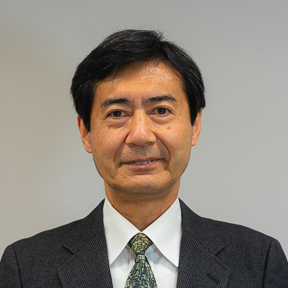
HIRAMOTO Toshiro
Professor
Komaba Campus
Grad: SOE-EEIS, (※)
Dept: ー
Semiconductor silicon nano device aimed at large -scale integration
Hiramoto/Kobayashi Laboratory is pursuing ultimate integrated nanoelectronics by device innovation to solve the world's issues.

HIRAMOTO Toshiro
Professor
Semiconductor silicon nano device aimed at large -scale integration
Hiramoto/Kobayashi Laboratory is pursuing ultimate integrated nanoelectronics by device innovation to solve the world's issues.
Associate Professor

KUROYAMA Kazuyuki
Associate Professor
Komaba Campus
Grad: SOE-EEIS
Dept: ー
光・物質ハイブリッド系における量子ナノエレクトロニクス
量子情報処理技術をはじめとする近年の量子科学技術において、異なる量子系をハイブリッドさせることで、複数の量子系の間で量子情報を変換したり、単一の量子系では現れないような新しい量子的機能を実現したりする試みが活発になされています。私たちの研究室では、半導体量子ドットなどの制御性の高い量子ナノ構造素子とテラヘルツ技術を用いて、電子と光・電磁波とが強く相互作用した量子結合状態で現れる新しい物理の探求を行っています。

KUROYAMA Kazuyuki
Associate Professor
光・物質ハイブリッド系における量子ナノエレクトロニクス
量子情報処理技術をはじめとする近年の量子科学技術において、異なる量子系をハイブリッドさせることで、複数の量子系の間で量子情報を変換したり、単一の量子系では現れないような新しい量子的機能を実現したりする試みが活発になされています。私たちの研究室では、半導体量子ドットなどの制御性の高い量子ナノ構造素子とテラヘルツ技術を用いて、電子と光・電磁波とが強く相互作用した量子結合状態で現れる新しい物理の探求を行っています。
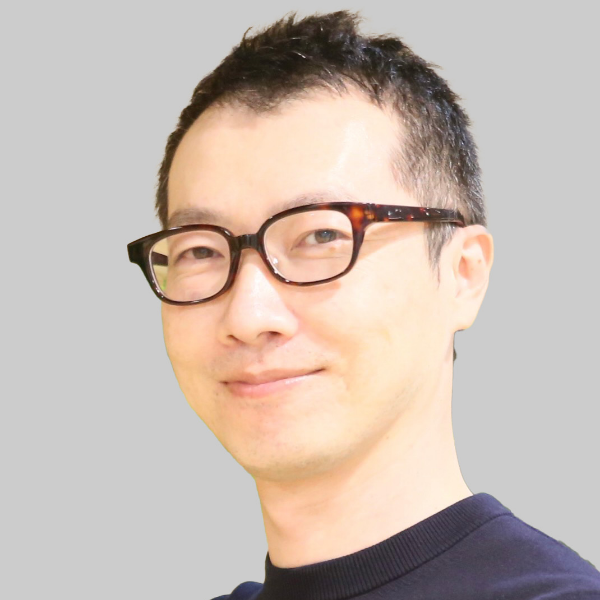
KOBAYASHI Daisuke
Associate Professor
Sagamihara Campus
Grad: SOE-EEIS
Dept: ー
Startled Computers: Space makes semiconductors surprised
In Sci-Fi movies, androids are often depicted as having cold and emotionless character. We may have such impression because most of computers rely on digital processing in which everything is flatly divided into "1" or "0", but—would you believe it?—they are easily surprised and often get upset. It is caused by a strike of tiny invisible particles, fragments of exploding stars a.k.a cosmic rays, but the shock is significant. The shock makes a computer chip surprised and lose its memory, control, and even its fundamental ability to boot up. So, what will you do next?

KOBAYASHI Daisuke
Associate Professor
Startled Computers: Space makes semiconductors surprised
In Sci-Fi movies, androids are often depicted as having cold and emotionless character. We may have such impression because most of computers rely on digital processing in which everything is flatly divided into "1" or "0", but—would you believe it?—they are easily surprised and often get upset. It is caused by a strike of tiny invisible particles, fragments of exploding stars a.k.a cosmic rays, but the shock is significant. The shock makes a computer chip surprised and lose its memory, control, and even its fundamental ability to boot up. So, what will you do next?
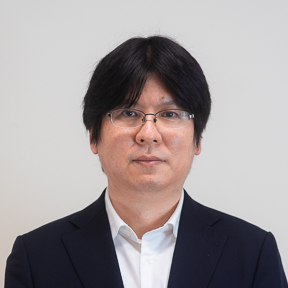
SEKI Munetoshi
Associate Professor
Hongo Campus
Grad: SOE-EEIS, (※)
Dept: EE
Electronics to learn "bio" to "learn and bio"
We aim to create new electronics inspired by bio-systems, with the keyword of "Yuragi (fluctuation)" which is unique to life-systems. We fabricate artificial lattices composed of magnetic and ferroelectric phases, and conduct basic researches on the relation between their physical properties caused by "fluctuations" and the flexiblity/plasticity of bio-systems.

SEKI Munetoshi
Associate Professor
Electronics to learn "bio" to "learn and bio"
We aim to create new electronics inspired by bio-systems, with the keyword of "Yuragi (fluctuation)" which is unique to life-systems. We fabricate artificial lattices composed of magnetic and ferroelectric phases, and conduct basic researches on the relation between their physical properties caused by "fluctuations" and the flexiblity/plasticity of bio-systems.
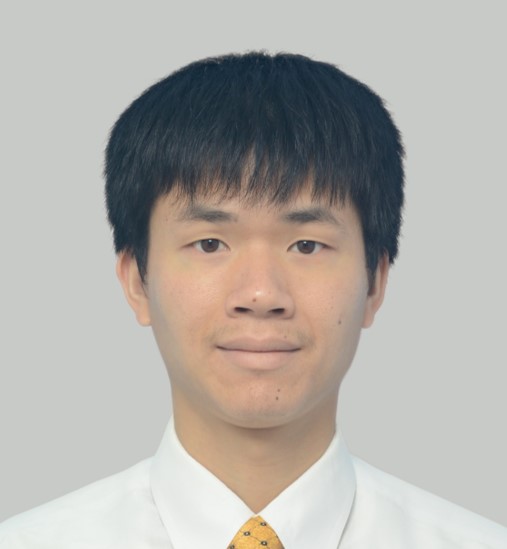
TOPRASERTPONG KASIDIT
Associate Professor
Hongo Campus
Grad: SOE-EEIS
Dept: EE
Advanced electronic devices using semiconductors and functional materials
Our research focuses on the development of functional electronic devices based on semiconductor and ferroelectric materials. We explore various research areas such as material engineering, device physics, and new-concept computing by leveraging the unique properties of these materials and devices.

TOPRASERTPONG KASIDIT
Associate Professor
Advanced electronic devices using semiconductors and functional materials
Our research focuses on the development of functional electronic devices based on semiconductor and ferroelectric materials. We explore various research areas such as material engineering, device physics, and new-concept computing by leveraging the unique properties of these materials and devices.
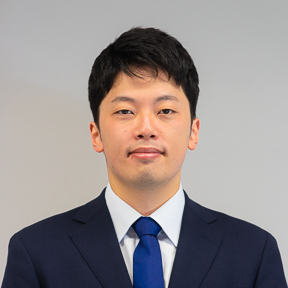
MATSUHISA Naoji
Associate Professor
Komaba Campus
Grad: SOE-EEIS
Dept: ー
Soft and stretchable electronic mateterials and the devices to harmonize human-machine interactions
We are working on the development of electronic materials and devices that are soft and stretchable like a living body. Taking advantage of the softness, we aim to realize a healthcare sensor that integrates the skin and body and the next-generation human computer interface.

MATSUHISA Naoji
Associate Professor
Soft and stretchable electronic mateterials and the devices to harmonize human-machine interactions
We are working on the development of electronic materials and devices that are soft and stretchable like a living body. Taking advantage of the softness, we aim to realize a healthcare sensor that integrates the skin and body and the next-generation human computer interface.
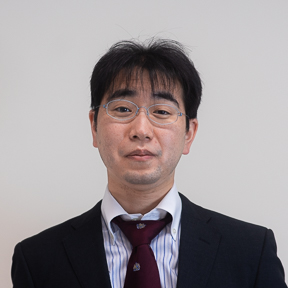
YOKOTA Tomoyuki
Associate Professor
Hongo Campus
Grad: SOE-EEIS
Dept: EE
Organic electronics for flexible sensor application
Our group develop the soft electronics by organic materials. Our focus is Device Physics, Development of new process, Application.

YOKOTA Tomoyuki
Associate Professor
Organic electronics for flexible sensor application
Our group develop the soft electronics by organic materials. Our focus is Device Physics, Development of new process, Application.
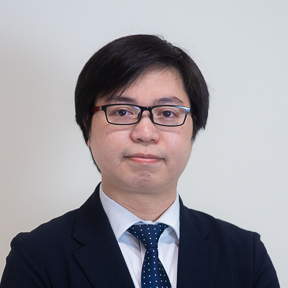
LE DUC ANH
Associate Professor
Hongo Campus
Grad: SOE-EEIS
Dept: EE
Realization of semiconductor materials and devices that integrate "magnetism", "superconductivity" and "topology".
Our focus is to integrate "magnetism", "superconductivity" and "topology" to all-in-one semiconductor platforms, using nanoscale semiconductor/ferromagnet/superconductor hybrid structures. These integrated material platforms would pave new ways to fundamental technologies for ultra-low power-consumption electronics and fault-tolerant quantum information.

LE DUC ANH
Associate Professor
Realization of semiconductor materials and devices that integrate "magnetism", "superconductivity" and "topology".
Our focus is to integrate "magnetism", "superconductivity" and "topology" to all-in-one semiconductor platforms, using nanoscale semiconductor/ferromagnet/superconductor hybrid structures. These integrated material platforms would pave new ways to fundamental technologies for ultra-low power-consumption electronics and fault-tolerant quantum information.
Lecturer
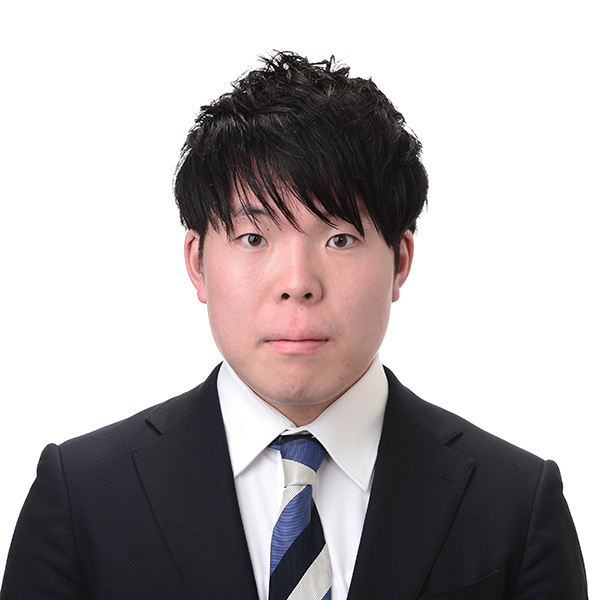
MAEDA Takuya
Lecturer
Hongo Campus
Grad: SOE-EEIS
Dept: EE
Material Science and Device Physics in Wide-Bandgap Semiconductors
Wide-bandgap semiconductors, exemplified as Gallium Nitride (GaN) and Silicon Carbide (SiC), have garnered significant attention as materials for high-voltage and high-current power devices as well as high-frequency and high-power devices due to their superior material properties such as high breakdown electric field strength and high carrier drift velocity.

MAEDA Takuya
Lecturer
Material Science and Device Physics in Wide-Bandgap Semiconductors
Wide-bandgap semiconductors, exemplified as Gallium Nitride (GaN) and Silicon Carbide (SiC), have garnered significant attention as materials for high-voltage and high-current power devices as well as high-frequency and high-power devices due to their superior material properties such as high breakdown electric field strength and high carrier drift velocity.
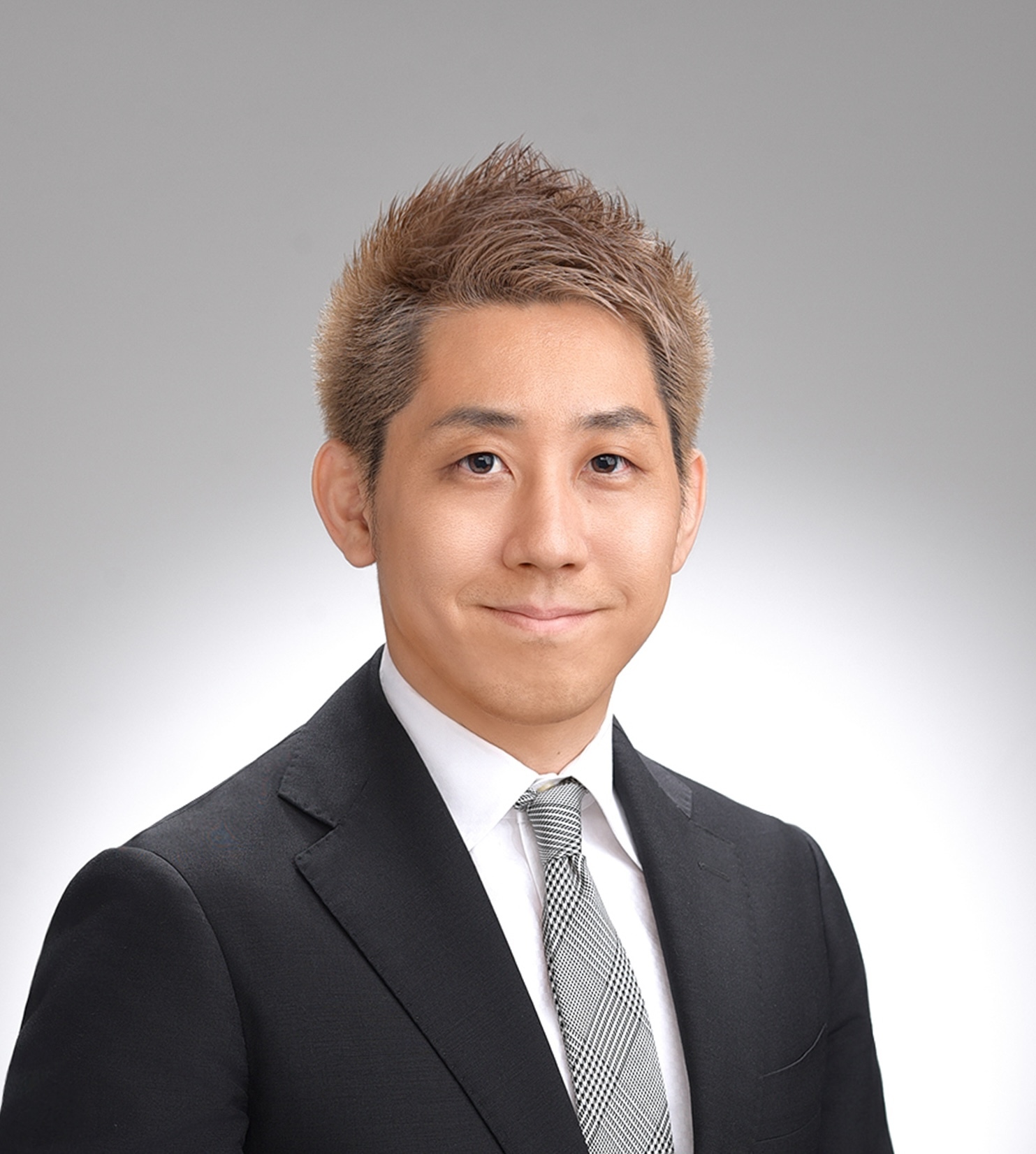
YAMAGISHI Kento
Lecturer
Hongo Campus
Grad: SOE-EEIS, (※)
Dept: EE
Ultrathin film electronics for healthcare and medical applications
We aim to develop electronically functionalized 'ultra-thin film electronics' by implementing and printing electrodes, wiring, antennas, etc., on polymeric ultra-thin films with a thickness ranging from several hundred nanometers to a few micrometers. This technology is intended for applications in the healthcare, medical, and sports fields, with the goal of creating devices that can be adhered to soft biological tissues such as the skin and organs, functioning like a sticker.

YAMAGISHI Kento
Lecturer
Ultrathin film electronics for healthcare and medical applications
We aim to develop electronically functionalized 'ultra-thin film electronics' by implementing and printing electrodes, wiring, antennas, etc., on polymeric ultra-thin films with a thickness ranging from several hundred nanometers to a few micrometers. This technology is intended for applications in the healthcare, medical, and sports fields, with the goal of creating devices that can be adhered to soft biological tissues such as the skin and organs, functioning like a sticker.